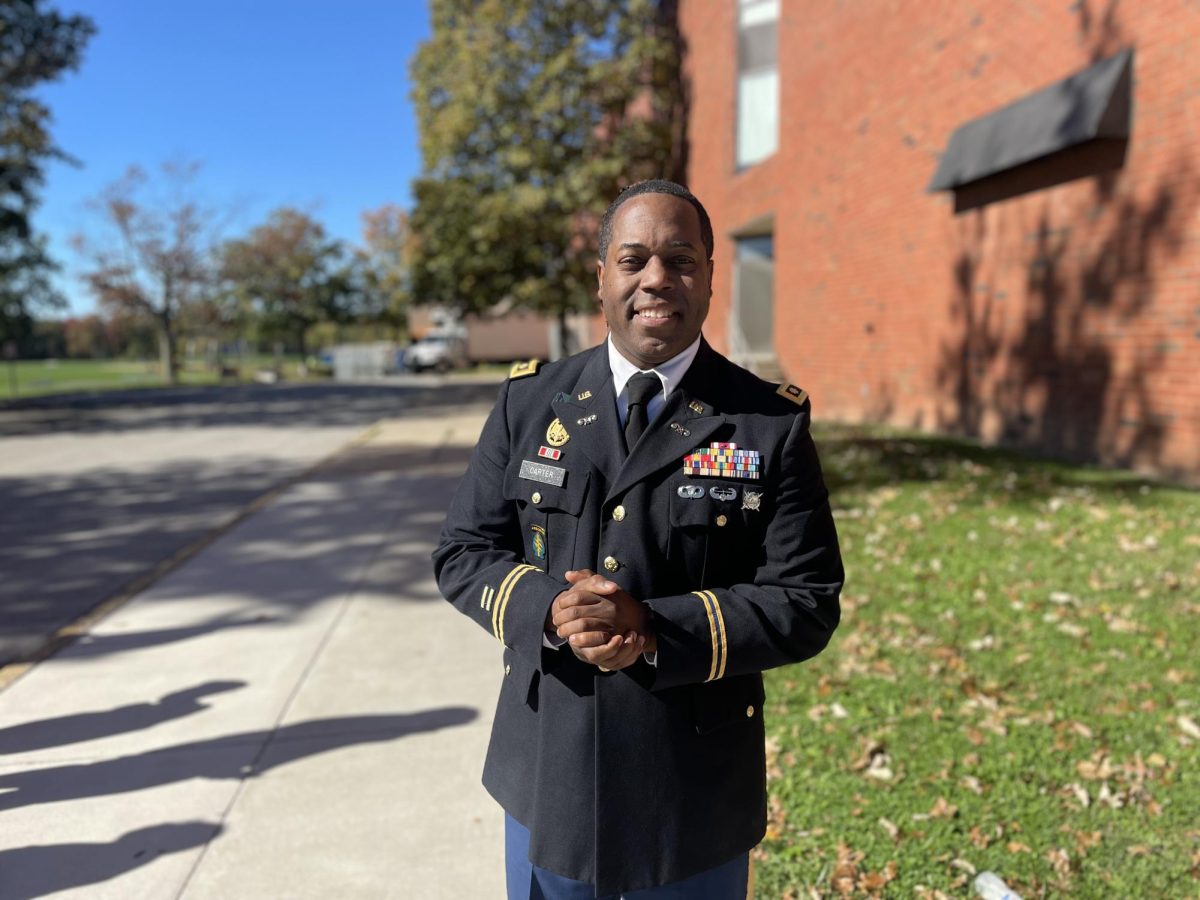Lack of Sex Education in School Leaves Students Unprepared
Opinion
March 1, 2023
In tenth-grade gym class, I watched a video on reproduction. It was a strange video that described a vagina as a large, vast valley while showing a montage of a literal valley in the background. We watched this video for two days, and it was probably one of the strangest videos I have ever watched. After that, we went right back to talking about not doing drugs and working out with no further conversation about reproduction. That video and the questions that followed were the closest I ever got to sexual health education in high school.
I watched this video during virtual learning, but now that we are in school, sex education is still limited.
Although sex education is touched on during gym classes, it is only talked about for a short period of time. In-person classes run on a two-week rotation, so that every P.E. class gets a turn in every room including the pool, the gym, and the classroom. This means that they have to fit the topic of sex education along with 15-20 other topics that would be talked about in a health class in a span of roughly 2 weeks, and even that is if there are no disruptions, such as early dismissals or planned fire drills. With such a limited amount of time, the students don’t get a proper education.
The lack of sex education in schools is a lot more harmful than one might think. A lot of kids don’t get the proper information when it comes to sexual health. When sex is talked about at home, it can be in a shameful manner, or these conversations just encourage kids to not have sex, which usually doesn’t stop them. It just leads to teens making uneducated and sometimes even harmful decisions. It also leaves teens feeling as if they don’t have anyone to reach out to.
What happens when these conversations aren’t handled correctly? These kids miss out on important information, or they find the information in all the wrong places. The internet does not censor anything and it is insanely easy to be exposed to misinformation about sex. Along with this misinformation, it is also very easy to be exposed to graphic and violent content despite preventive measures like child-lock. This harmful content can leave an impression and spill over into the kids’ relationships.
That’s not to say that there aren’t any educational websites or videos on the internet. I can speak from experience, considering I learned a lot more on the internet than I ever did from any conversation I had with any adult in my life.
These conversations shouldn’t just be limited to just sex though. For example, one very important topic sex education should touch on is consent. Learning how to set boundaries and respect others’ boundaries is a big life skill that isn’t ever actually taught, and it’s one that I see people struggling with the most.
The issue of consent shows up in our day-to-day lives, even in situations that seem insignificant like, taking a picture of someone without their knowledge or permission, or telling a friend that they’re treating you badly. If kids are taught how to communicate their boundaries and understand consent early on, they will learn something that will not only help them in their relationships but also help them spot when someone is treating them in a manner that is harmful.
Regular health classes aren’t teaching enough when it comes to our bodies and experiences. They don’t have the time to fully teach us about the way our bodies work or talk about the emotional changes caused by hormones. At most, they touch on the basics, but students should be getting more than the bare minimum when it comes to their education.
Another issue is when these conversations are split up into concepts of gender. The complicated ways we understand gender should be an open conversation, including but not limited to sexuality and gender performance. Everyone’s experience growing up is different, and each one is important. Learning about these different experiences can teach a level of empathy and make those who are not straight or cis-gender feel less alone.
Some parents, teachers, and even students may not want to have these conversations because they see all of these as uncomfortable conversations, but this discomfort is exactly where the issue is. The more we normalize these conversations, the less shame we will have around these natural and very normal issues. Without being treated as if it’s something to avoid or feel guilty about, these conversations can do so much good for the student’s mental health and relationships. It’s something that needs to be normalized by the adults in students’ lives for their benefit.
Expanding the conversations in a safe school environment where more time is given to them is the best place to start.





Ms. Villalba • Mar 14, 2023 at 8:02 am
Awesome article, Dinia! As a teacher, I notice the gaps in students’ knowledge about consent and reproductive health when I overhear conversations. I hope your article draws some attention to these issues!
\\\\\\\\\\\\\\\\\\\\\\\\\\\\\\\\\\\\\\\\\\\\\\\\\\\\\\\\\\\\\\\\\\\\\\\\\\\\\\\\\\\\\\\\\\\\\\\\\\\\\\\\\\\\\\\\\\\\\\\\\\\\\\\\\\\\\\\\\\\\\\\\\\\\\\\\\\\\\\\\\\\\\\\\\\\\\\\\\\\\\\\\\\\\\\\\\\\\\\\\\\\\\\\\\\\\\\\\\\\\\\\\\\\\\\\\\\\\\\\\\\
K. Boyle • Mar 7, 2023 at 8:05 am
Great article, Dinia.
Mr. Bucci • Mar 3, 2023 at 12:15 pm
Thanks for writing a thoughtful article on an important topic. Young people who get their information primarily from friends, peers, social media, or disreputable websites are at risk physically, mentally, and emotionally. However, the demand for more complete Sex Ed can go unspoken, especially by students who may be embarrassed to have these discussions, ask important questions, or appear to be uninformed about the topic. I hope this article gets the readership it deserves and sparks a much-needed discussion!